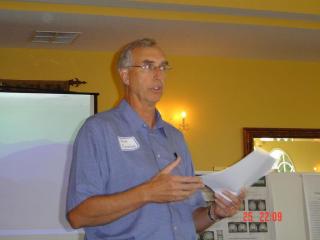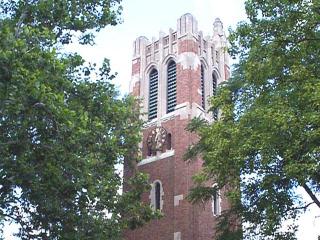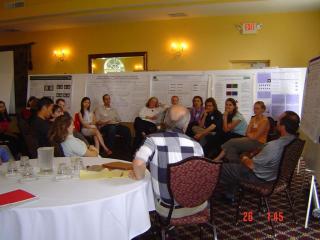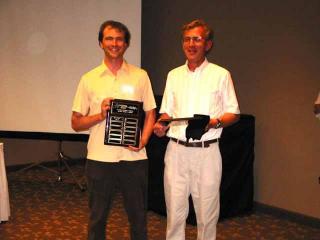|
|
Purpose of the GSC The
Neuroscience Program Graduate Student Council (NSP GSC) was first
organized in the summer of 2002, in part as a response to calls for
increased communication between NSP students, faculty and
administration. The purpose of the NSP GSC is to: Increase the role of graduate students in the organization and running of the NSP;Facilitate camaraderie among NSP graduate students;Facilitate communication between NSP graduate students and faculty.
|
|
|
Structure of the GSC The GSC is by design informal, the goal being to ensure that all voices are equal all students who wish to contribute can do so easily. To
this end, it is organized around a council composed of student
volunteers, headed by an elected chair. For details on the structure
and organization of the GSC, please refer to the GSC Constitution. GSC activities can be loosely categorized into 3 components shown above. These are described in more detail to your right.
|
|

Dr. David Kreulen is the faculty Liasion for the NeuroBuddy program.
|
The GSC Launches the NeuroBuddy Program in 2004 To
assist in integrating first-year students into the NSP community, the
GSC in conjunction with Program faculty started a peer-mentoring
program. Each incoming student is paired with a senior graduate
student, who serves as an all-purpose advisor during the first year.
NeuroBuddies are a resource for information, help with coursework,
provide advice on surviving graduate school, and serve as a social
contact.
|
|
|
Steering Committee 2004-2005
Kaliris Salas-Ramirez (Chair)
Melissa Holmes (CID Leadership Team)
John Morris
Michael Schwartz (CID Leadership Team)
Christina Herden (Teaching Exp. Sub-Com.)
Jayme Mancini (Council of Graduate Students)
James Otero (Comprehensive Exam Sub-Com.)
Jim Ren (Faculty Advisory Com.)
Yanny Lau
Robert Drolet (Graduate Affairs Com.)
Andrew Shin
Jennifer Neal
Xian Cao (Dean's Student Advisory Com.)
Deborah Soellner (First-year Rep.)
|
|
|

Michigan State University campus
|
|
|
|
1. Administration The
GSC sends representatives to all of the standing NSP administrative and
ad-hoc committees, as well as several university-wide groups. Most
recently, through the CID we have started to interact with other
neuroscience programs. GSC involvement: facilitates a two-way flow of information between grad students and administrative/academic groupsmakes students a part of the administrative process
|
|
|
2. Community From
its inception, the GSC has worked to foster the sense of community that
is essential for scientific research and training. Events such as the annual retreat and presentation of the faculty award allow us to 'keep in touch' with each other and to recognize the accomplishments of our colleagues.
|
|

NSP students, postdocs and faculty at the 2004 retreat
|
The Annual Retreat The
Neuroscience Program gathers for a retreat at the beginning of the
academic year to welcome incoming students and to share ideas generated
over the course of the summer. The format is a mix of research
presentations by students, postdocs and faculty, administrative/policy
discussions, brainstorming and social time. This provides an
opportunity to appreciate the breadth of the program and to solicit
ideas from people that may not get to interact on a daily basis. We aim
for an open and relaxed atmosphere where complements are sincere and
any criticism is constructive. And of course there's a free lunch!
|
|
|
|
3. Training Most
recently, the GSC has initiated several programs that give grad
students more direct responsibility for their own training. These
include: A yearly student-organized mini-symposium seriesA peer-mentoring program for first-year students (NeuroBuddies)Student-moderated workshops in the career development course (Neuroscience Forum)
|
|

John Morris presents Dr. Peter Cobbett (right) with the first NSP Faculty Award in 2003.
|
Faculty Awards Started
in 2002-2003, the NSP students have recognized the achievements of the
NSP faculty with an annual Faculty Award. The Award recognizes
excellence in teaching, mentoring and/or service to the program.
Candidates are nominated and selected by the students each spring
semester, and the Award is presented at the annual Program retreat.
Dr. Peter Cobbett (Fac. Award 2003)
Dr. Antonio Nunez (Fac. Award 2004)
|
|
|